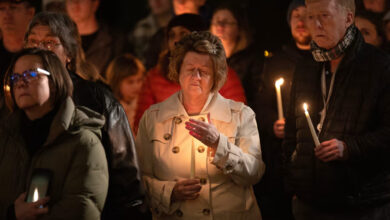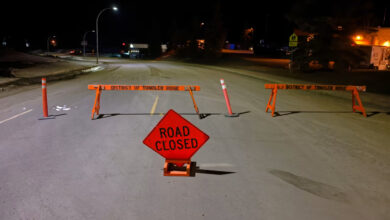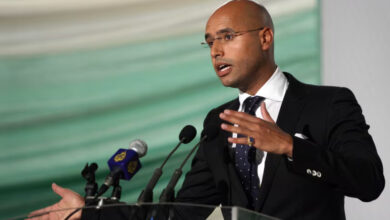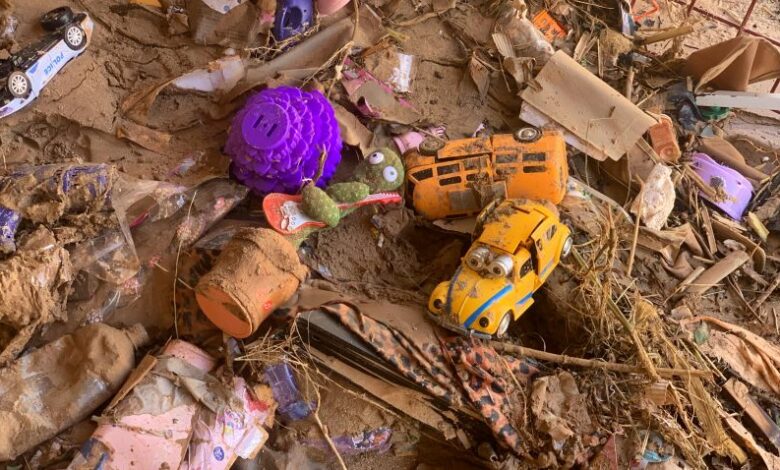
Even at night, damage and destruction could be seen everywhere you looked. In the light of day, a scene of utter devastation unfolded.
For our team, which traveled into the area with the Libyan National Army (LNA), it felt like driving into a war zone where massive bombs had gone off.
At least 5,000 people have died in Libya, Doctors Without Borders (MSF) said Thursday, and thousands more are feared missing.
Everyone we’ve spoken to here fears and believes the death toll is only going to rise significantly in the coming days.
Officials told us the destruction and loss of life happened within the span of 90 minutes or so after the two dams above Derna burst, sending flood waters sweeping through the city, wiping out entire neighborhoods, homes and infrastructure, and carrying them out to sea.
People are in shock. This is a country that has experienced years of turmoil since the overthrow of Moammar Gadhafi’s regime in 2011 – but the disaster has hit Libyans hard.
They say they still can’t comprehend what happened. They are used to war and death but nothing could have prepared them for this: They feel like a whole city has been wiped out.
Driving in through one of the city’s entrances in the early hours, there was a large handwritten board that read “Sad Derna.” Two young men sat next to it, around a fire, in an otherwise pitch-dark street, their feet covered in mud and clothes in dust. They waved at the LNA escort, smiled and gave a “V” hand gesture.
Officials in the city are dealing with search and rescue efforts, recovery, draining the flood water, helping the displaced – situations they have never handled before. One official told CNN he doesn’t believe the search for survivors is over.
Libyan officials say bodies are still washing back up on the shores of Derna, six days after the wall of water swept through the city.
The detritus of people’s lives can also be seen in the Mediterranean waters – homes, door frames, windows, furniture, clothes, cars – everything.
Meanwhile, at least 30,000 people there have been displaced, the International Organization for Migration said Thursday. Concern for the welfare of survivors is growing.
The head of the ICRC’s Libya delegation said it would take “many months, maybe years,” for residents to recover from the devastation wreaked by Storm Daniel’s heavy rainfall.
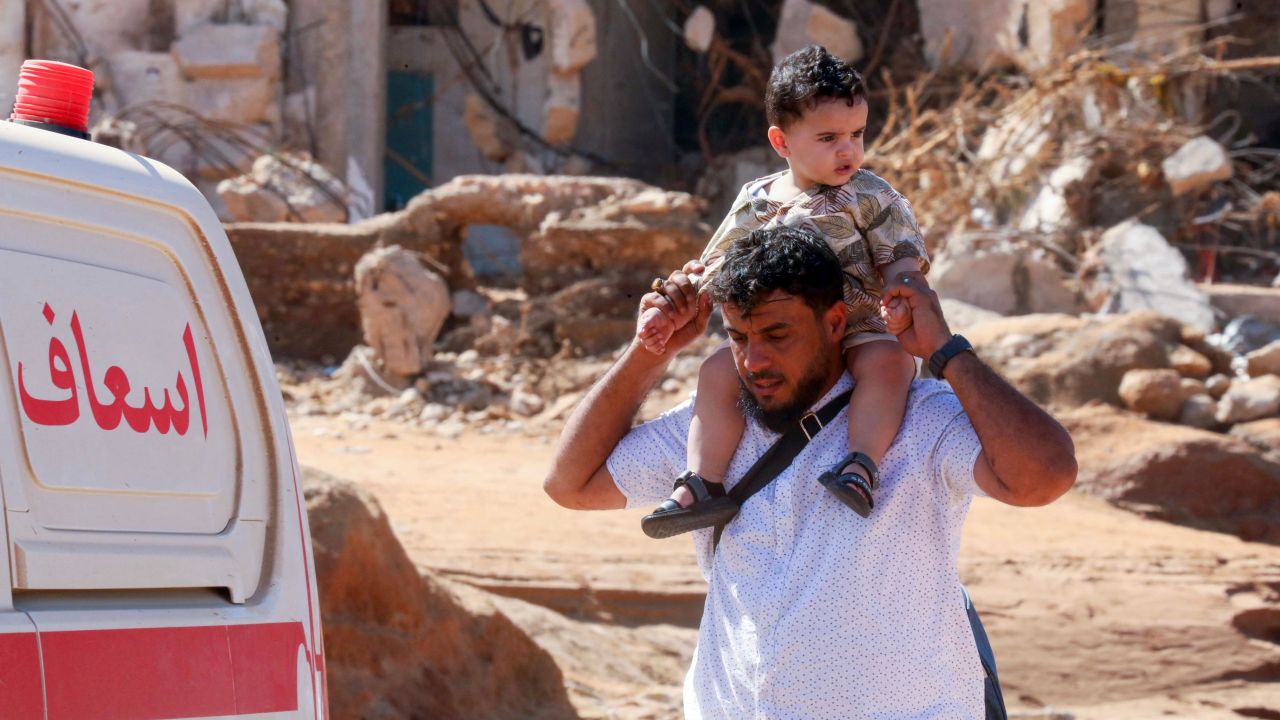
The flooding has damaged roads and bridges, making access to the city and surrounding areas difficult. It took more than seven hours to drive from Benghazi airport to Derna on Thursday night – a journey that would typically take three hours.
This, combined with an uncertain security situation, make it hard for humanitarian aid to get through. However, some Libyans told CNN how they felt this tragedy has brought a divided country together, at least for now.
Libya has been riven by political turmoil since civil war erupted in 2014, and now has two rival governments, the eastern parliament-backed government in Benghazi and the internationally recognized government in Tripoli.
But on the drive from Benghazi, many cars could be seen coming in from different cities from across Libya – from the far west and the western mountains, or the coastal city of Misrata to the south – carrying volunteers or bringing in aid.
Some drivers had spray-painted their cars or were flying flags with a phrase that might translate as “brotherly solidarity” or “rushing to the aid of our brothers.”
The volunteers pouring into Derna from across the country are trying to help with the recovery efforts. But some told CNN they were not equipped to deal with this kind of situation.
One young man described how volunteers were tying ropes around their bodies to dive into the sea and haul out bodies. He recounted having pulled out 40 bodies by himself in the course of one day.
Volunteers are saying they need heavy equipment that can pull large objects, such as cars that are feared to contain dead bodies, from the sea. They need divers and diving equipment, they say.
There is some international support here, including a Turkish rescue team on a rubber boat. But nowhere near enough to deal with this disaster.
And on landing at Benina airport in Benghazi, there appeared to be no big influx of aid, as one might expect following a disaster of this scale.
LNA officials said, though, that the support they have received from countries that have sent in teams has helped them to deal with an unprecedented situation.

